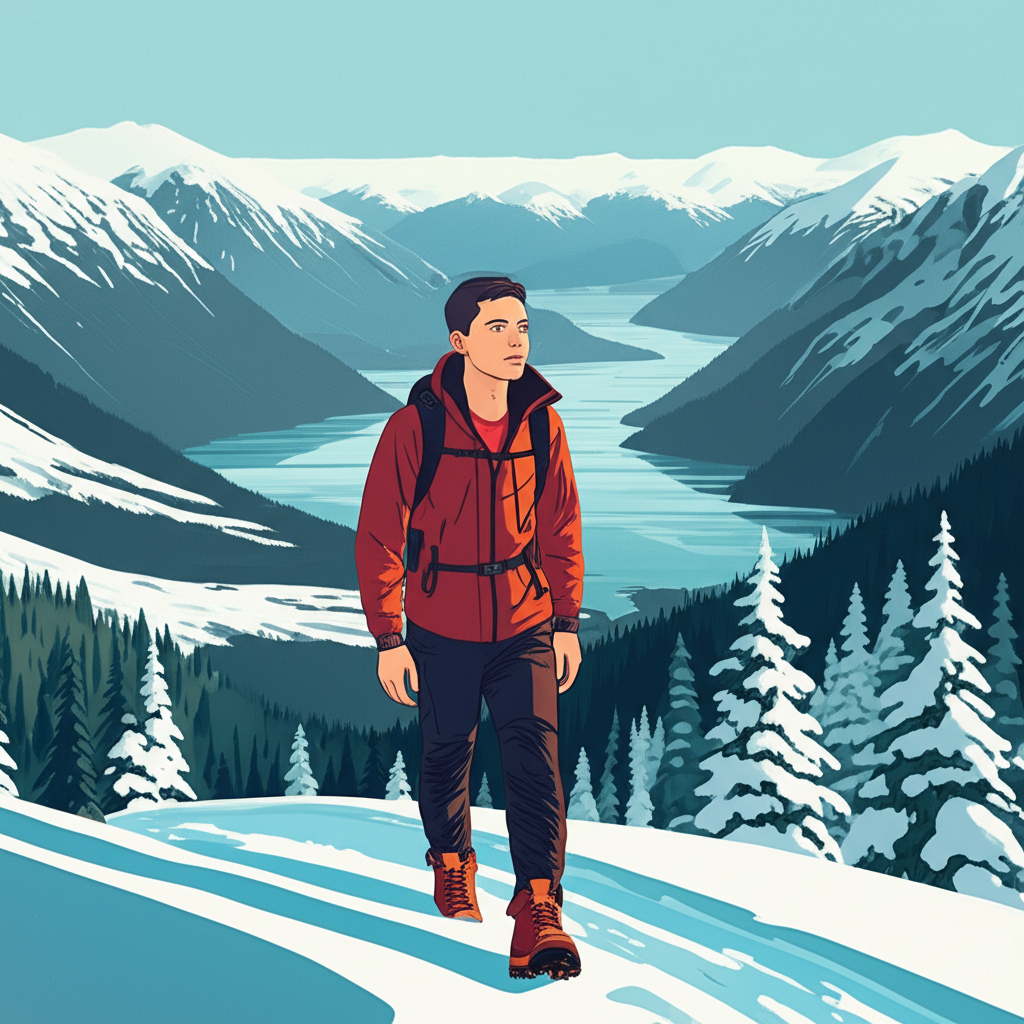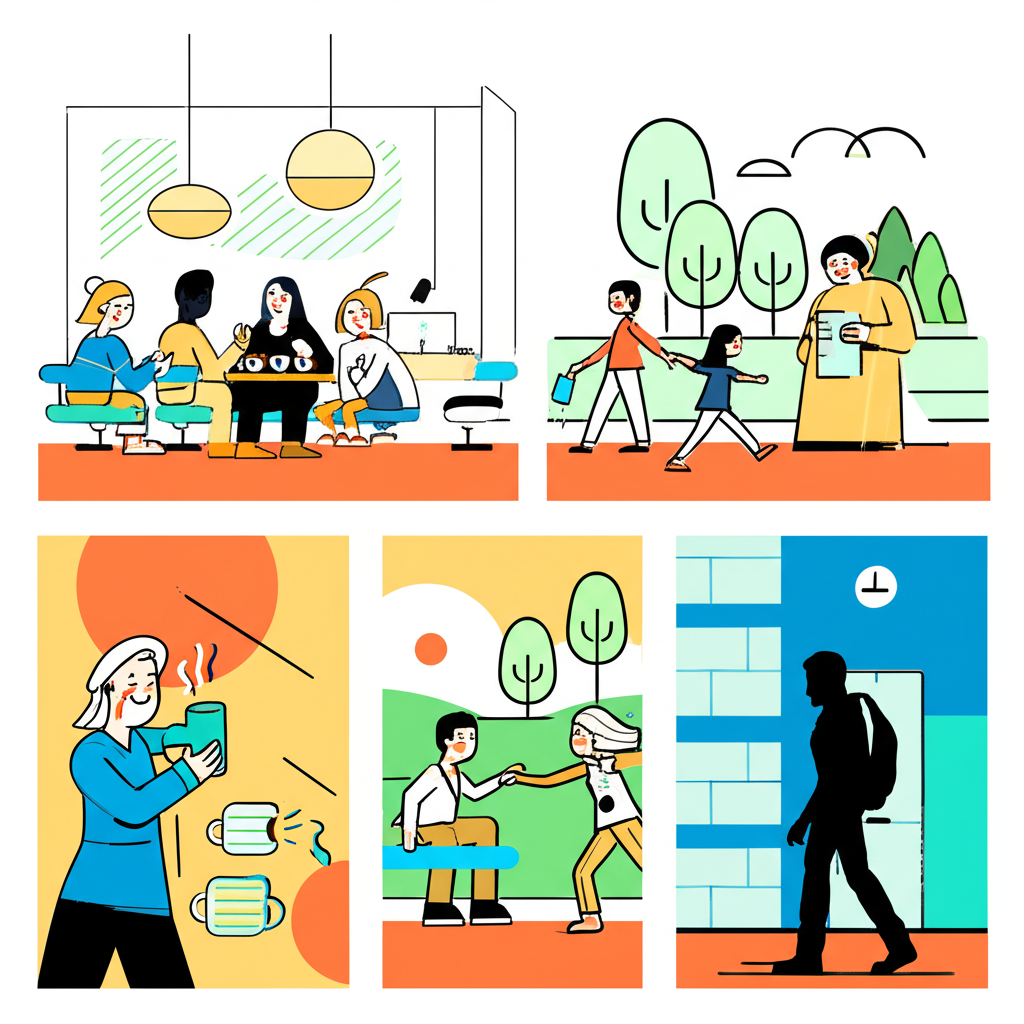Stress feels like a constant companion for many people today. Across the globe, mental health challenges are on the rise. A recent study by the American Psychological Association, for example, highlighted widespread stress, particularly concerning finances and health. Yet, some countries consistently stand out. Denmark, Sweden, Norway, Finland, and Iceland—the Nordic nations—often rank among the happiest places to live. This is true despite their long, dark winters or demanding economies.
How do they manage this? This article explores the unique cultural philosophies and societal structures in Nordic countries. These elements contribute to their distinct approach to stress management. Ultimately, you can also learn actionable insights to apply in your own life.
The Nordic Paradox: High Pressure, Low Stress (Perceived)
Life in Nordic countries is not without challenges. People still face demanding jobs and personal responsibilities. However, these nations seem to have a unique way to lessen the impact of stress. They appear to have a collective resilience.
Their societal foundations play a big role. Nordic countries have robust welfare states. They offer strong social safety nets. Universal healthcare and education are standard. Indeed, these services act as baseline stress reducers. They provide a deep sense of security and trust. Consequently, citizens know they have support, which eases everyday worries.
Nordic cultures embrace several core ideas. These ideas are more than just concepts. Instead, they are daily practices that shape how people live. Furthermore, they directly influence stress levels.

Lagom (Sweden): The Art of Just Enough
Definition
‘Lagom’ (pronounced “lah-gom”) is a Swedish philosophy. It means “not too much, not too little.” Specifically, it emphasizes balance, moderation, and sufficiency. It is about contentment with what you have, rather than always wanting more.
Application to Life
Lagom applies to many parts of life.
- Work: Swedes often have shorter workweeks. Mandatory ‘fika’ (coffee breaks) are common. These breaks encourage rest and connection.
- Consumption: Lagom promotes sustainable living. It encourages anti-materialism. Therefore, people buy what they need, not just what they want.
- Social Interactions: It means avoiding extremes. People value harmony.
Stress Reduction
Embracing ‘just enough’ prevents burnout. It reduces the constant pressure to strive for more. This philosophy fosters a deep sense of contentment. Ultimately, it takes away the need for endless competition.
Hygge (Denmark/Norway): Cozy Well-being
Definition
‘Hygge’ (pronounced “hoo-gah”) is a Danish and Norwegian word. It describes a feeling of warmth. In essence, it means creating a warm atmosphere. It is about enjoying life’s good things with good people. Hygge embodies comfort, coziness, and contentment.
Application to Life
People actively create Hygge moments.
- Atmosphere: They light candles. They enjoy warm drinks. Soft blankets are common.
- Connection: They share meals. They have intimate gatherings.
- Mindfulness: They focus on being present. They appreciate small moments of joy.
Stress Reduction
Hygge counters external pressures. It shifts focus to internal peace. Moreover, it promotes connection and sensory comfort. It helps people appreciate simple pleasures. Consequently, this makes stressful situations feel less overwhelming.
Sisu (Finland): Gritty Determination & Resilience
Definition
‘Sisu’ (pronounced “see-soo”) is a unique Finnish concept. It means extraordinary determination. Furthermore, it implies courage and resilience. It is a never-give-up attitude, especially when facing adversity.
Application to Life
Sisu shows up in daily Finnish life.
- Endurance: People endure challenging conditions. For example, think of cold plunges or saunas followed by ice baths.
- Perseverance: They show mental toughness through difficulties.
- Self-Mastery: Sisu helps people push past limits.
Stress Reduction
Sisu is not about avoiding stress. Instead, it builds internal strength to face stress head-on. It helps turn obstacles into chances for growth. This perspective reduces feelings of overwhelm, cultivating a powerful sense of self-reliance.
Friluftsliv (Norway): Embracing Outdoor Life
Definition
‘Friluftsliv’ (pronounced “free-loofts-liv”) means “free air life.” It is a deep cultural connection to nature. It involves outdoor activities, regardless of the weather.

Application to Life
Spending time outdoors is a key part of daily life.
- Activities: People enjoy hiking, skiing, cycling, and camping.
- Simple Pleasures: Even a short walk in nature is valued.
- Integration: Nature is not just for weekends; it is part of the week.
Stress Reduction
Friluftsliv offers many benefits.
- Mental: It reduces anxiety and improves mood.
- Physical: It provides essential physical activity.
- Mindfulness: Observing nature fosters mindfulness.
- Perspective: Connecting with something larger than oneself offers perspective. This helps put daily stressors into context.
Societal & Cultural Enablers of Nordic Stress Resilience
Beyond individual philosophies, Nordic societies build systems that support well-being. These systems help reduce chronic stress for everyone.
- High Trust and Social Cohesion: People in Nordic countries show high levels of trust. They trust their government, institutions, and fellow citizens. This high trust reduces background anxiety. It fosters a sense of collective security. Consequently, people feel safer and more supported.
- Robust Work-Life Balance Culture: Policies and cultural norms prioritize work-life balance.
Generous Parental Leave: Both parents can take long leaves.
Flexible Working Hours: Many jobs offer flexibility.
Significant Vacation Time: Workers get ample paid time off.
These factors greatly reduce work-related stress.
- Egalitarianism & Strong Safety Nets: Nordic societies are largely egalitarian, meaning they aim for equality.
Universal Healthcare: Everyone has access to medical care.
Free Education: Education is free from primary school through university.
Robust Unemployment Benefits: Support is available if someone loses their job.
Indeed, these safety nets minimize financial stress. They also reduce the fear of failure. Therefore, this creates a less competitive and more supportive environment.
- Emphasis on Lifelong Learning & Well-being: Nordic culture values continuous personal development. Well-being principles integrate into education and public discussions. This focus ensures people learn skills for life, not just for work.
What You Can Learn and Apply: Personal Growth
You do not need to move to a Nordic country to benefit from their wisdom. Instead, you can adopt these powerful ideas wherever you are. Here are some actionable steps:
- Adopt a ‘Lagom’ Mindset: Think about what “enough” means in your own life. This applies to your work hours, your consumption habits, and your social commitments. Aim for balance instead of extremes. Try to find contentment in sufficiency.
- Cultivate ‘Hygge’ Moments: Make time to create cozy, comfortable experiences. Light a candle, enjoy a warm drink, or share a simple meal with loved ones. Focus on quality time and being present. These small moments can bring significant peace.
- Tap into Your ‘Sisu’: Find small challenges to push through. This could be sticking to a new healthy habit or learning a difficult skill. Build mental resilience by facing difficulties. Ultimately, reframe obstacles as chances to develop inner strength.
- Embrace ‘Friluftsliv’: Make spending time outdoors a priority. Even short walks in a park can help. Reconnect with nature to gain its restorative benefits. Fresh air and natural light can greatly improve your mood.
What You Can Learn and Apply: Societal & Support
- Advocate for Better Work-Life Balance: Look for ways to improve your personal work-life balance. This might mean setting boundaries or delegating tasks. Additionally, you can advocate for healthier policies in your workplace. Support initiatives that promote employee well-being.
- Build Your Social Support: Nurture strong, trusting relationships with friends and family. Actively participate in your community. Indeed, a strong social network enhances your sense of belonging and security. This is a powerful buffer against stress.
Conclusion
Nordic countries offer a powerful lesson in managing stress. Their core philosophies—Lagom, Hygge, Sisu, and Friluftsliv—integrate deeply into daily life. These ideas are strongly supported by robust societal structures. High trust, work-life balance, and strong safety nets help people feel secure and well.
Adopting these approaches is a journey, not a quick fix. Experiment with these valuable lessons. You can build a more resilient, balanced, and contented life. Your geographical location does not limit you. The Nordic way offers universal principles for a less stressful existence.
Frequently Asked Questions (FAQs)
Q1: What is the main difference in how Nordic countries handle stress compared to others?
A1: Nordic countries focus on societal well-being and cultural philosophies. These include balance (Lagom), coziness (Hygge), resilience (Sisu), and outdoor life (Friluftsliv). These elements help prevent stress before it escalates. Moreover, they provide robust coping mechanisms.
Q2: Can I truly apply ‘Hygge’ or ‘Lagom’ if I don’t live in a Nordic country?
A2: Absolutely. Hygge is about creating comfort and connection in small moments. Lagom, on the other hand, is about finding balance and sufficiency. Both are mindsets you can cultivate anywhere, regardless of your location.
Q3: How does ‘Sisu’ help with stress, isn’t it about enduring hardship?
A3: Sisu helps by building mental toughness. It teaches you to face challenges head-on rather than avoiding them. This resilience reduces feelings of overwhelm and helps you grow stronger from stressful experiences.
Q4: Are Nordic people completely stress-free?
A4: No. Nordic people experience stress like anyone else. However, their cultural practices and societal support systems give them effective tools and environments to manage and mitigate the impact of stress more effectively.
Q5: What is ‘Friluftsliv’ and why is it important for stress reduction?
A5: Friluftsliv means “free air life.” It’s about spending time in nature. Consequently, it reduces anxiety, improves mood, and offers physical benefits. Connecting with nature helps you gain perspective and feel more grounded, which are great for managing stress.
Q6: How do strong social safety nets reduce stress?
A6: Universal healthcare, free education, and unemployment benefits reduce financial worries. They provide a sense of security. Knowing you have support reduces background anxiety and the fear of failure, thus creating a less stressful environment.
Q7: Is work-life balance in Nordic countries only due to government policies?
A7: Government policies like generous parental leave and vacation time play a big role. However, cultural norms also contribute significantly. There’s a widely shared understanding that personal time and well-being are just as important as work productivity.
Q8: What is one simple step I can take today to adopt a Nordic stress management approach?
A8: Try cultivating a “Hygge” moment. Light a candle, make a warm drink, and enjoy a few quiet minutes by yourself or with a loved one. Focus on the simple comfort and connection.
Q9: Do Nordic countries use saunas and cold plunges as a stress management technique?
A9: Yes, particularly in Finland, saunas are a deeply ingrained part of the culture. The practice of alternating between intense heat and cold (like cold plunges) invigorates people. It also contributes to physical and mental resilience, embodying ‘Sisu’ and often done with a ‘Friluftsliv’ connection.

